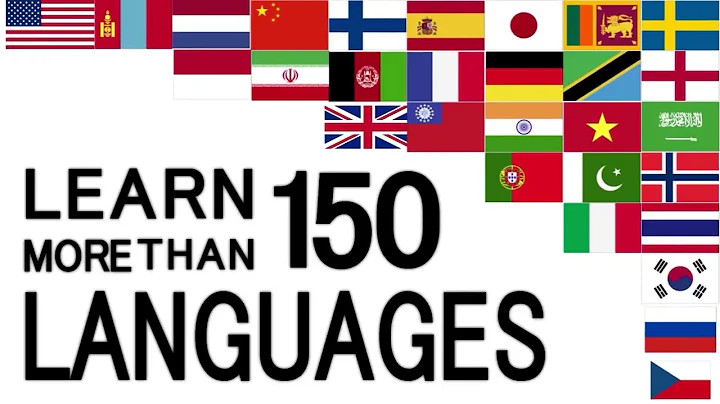[Text/ Observer Network Xiong Chaoran] In July this year, Lithuania allowed the Taiwan authorities to set up a "representative office" in the name of "Taiwan", triggering a round of diplomatic turmoil. The Chinese government expressed firm opposition to this and decided to Recall the Chinese Ambassador to Lithuania and ask the Lithuanian government to recall the Ambassador to China.
Since then, US Deputy Secretary of State Sherman and Secretary of State Blinken have successively "supported" Lithuania, claiming to stand with the other party to resist "China's coercive behavior." Now, on the issue of Taiwan, which is related to China's core interests, the United States seems to want to imitate Lithuania's tactics.
According to the British "Financial Times" on September 10, the Biden administration is moving in the direction of allowing the Taiwan authorities to change the name of its "Representative Office in the United States" to include the word "Taiwan". Multiple people familiar with the matter revealed that the United States is seriously considering Taiwan’s request and will rename the Taipei Economic and Cultural Representative Office (TECRO) in the United States to the Taiwan Representative Office (TRO). ). The
report also pointed out that this move is likely to trigger an "angry response" from China. China has repeatedly emphasized that it firmly opposes any form of official exchanges and contacts between the United States and Taiwan.

Screenshot of the British Financial Times report
According to this report, this Friday (September 10), senior officials from the United States and the Democratic Progressive Party authorities held a round of nominations in Annapolis, Maryland For the so-called "Special Channel" talks, members of the DPP authorities include "Secretary-General of the National Security Council" Gu Lixiong and "Minister of Foreign Affairs" Wu Zhaoxie. They were unable to go because the United States restricted senior Taiwanese officials from visiting Washington. The
report quoted two people familiar with the matter and disclosed that Kurt Campbell, senior coordinator for Indo-Pacific policy at the U.S. National Security Council , expressed support for the idea of this name change. One of the people familiar with the matter expressed support. It is also said that this move has also received widespread support from within the U.S. National Security Council and Asian affairs officials of the U.S. State Department.
People familiar with the matter revealed that the final decision on the name change has not yet been made, which will require US President Biden to sign an executive order to officially take effect. According to reports, neither the US government nor the Democratic Progressive Party authorities have responded to requests for comment on this matter.
The Taiwan issue has always been the source of tension between China and the United States. A person involved in the talks revealed that at the end of the Trump administration's term, the DPP authorities discussed changing the name of the "Representative Office in the United States" with the United States. In March this year, the DPP authorities made another formal request to the Biden administration, and have since been urging the United States to make this change.

Data map: Exterior view of the "Taipei Economic and Cultural Representative Office in the United States" from Taiwanese media
In response to the news, Taiwanese media such as "Central News Agency" and "United Daily News" claimed that if the name change is successful, "it will be the first time that 'Taiwan-US relations' have been established since 1979." "The most symbolic development", but this move is bound to have an impact on the already tense relationship between China and the United States.
The Financial Times also pointed out that Taiwan is an integral part of China, and the name change will anger China and bring greater pressure to the increasingly tense relationship between China and the United States. Two people familiar with the name change talks believe that whether to change the name is just a "symbolic gesture" and will aggravate tensions between China and the United States on the Taiwan issue and has no real benefits.
The spokesperson of the Chinese Ministry of Foreign Affairs has emphasized many times that China firmly opposes the U.S. government’s official exchanges with Taiwan in any form and under any pretext. This position is consistent and clear.
At the same time, Bonnie Glaser, a Taiwan expert at the German Marshall Fund, also questioned the idea of changing the name. She said that the United States and the Democratic Progressive Party authorities “should focus on meaningful actions to strengthen Taiwan’s security. Rather than symbolically provoking mainland China."
Randy Schriver, an Asia affairs official who has served in both the Bush and Trump administrations, claimed that the United States should consider this request. "For Beijing, they will complain about any small problem, but we should respect our Taiwanese friends to a certain extent."
It is worth noting that the "Financial Times" also mentioned that in July this year, Lithuania allowed the Taiwan authorities to " The establishment of a "representative office" in the name of "Taiwan". Because the Lithuanian government disregarded China’s repeated representations and expressed its interests, this move blatantly violated the spirit of the communiqué on the establishment of diplomatic relations between China and China and seriously damaged China’s sovereignty and territorial integrity. China decided to recall the Chinese ambassador to Lithuania on August 10 and asked the Lithuanian government to recall the ambassador. Ambassador of China.
In fact, not only did Lithuania allow the Taiwan authorities to set up the so-called "Taiwan Representative Office", the country's Foreign Minister Gabrielius Landsbergis also announced on June 30 that Lithuania was planning to establish offices in Taiwan, etc. A "representative office" was established in Southeast Asia.

Data map: Lithuanian Foreign Minister Landsbergistu from Taiwan media
In the face of the diplomatic turmoil between the two countries, US Deputy Secretary of State Sherman and Secretary of State Blinken successively had phone calls with Lithuanian Foreign Minister Landsbergis. Lithuania "backed up" and claimed that the United States would stand with the other party in response to the so-called "coercive behavior" from China.
In addition, US State Department spokesman Ned Price also declared on Twitter that the United States supports Lithuania and other European allies in developing relations with Taiwan, and responds to China's recall of its ambassador to Lithuania and its request for the Lithuanian government to recall its ambassador to China. condemn.
In response to this, the spokesperson of the Chinese Embassy in the United States pointed out on August 12 that the Lithuanian government allowed the Taiwan authorities to establish a "representative office" in the name of "Taiwan" and develop official substantive relations with the Taiwan authorities. It blatantly violates the spirit of the communiqué on the establishment of diplomatic relations between neutral and neutral countries, seriously damages China's sovereignty and territorial integrity, and seriously violates the one-China principle recognized by the international community. As a sovereign country, China has the right and should make a legitimate and reasonable response. The spokesperson of
emphasized that the United States has no right to point fingers or make irresponsible remarks. China urges the United States to earnestly abide by the three Sino-US joint communiques, abide by the one-China principle, and maintain the political foundation of Sino-US relations. The more than 1.4 billion Chinese people will never agree to any country that dares to challenge China's national sovereignty and territorial integrity. "Taiwan independence" is a dead end, and any attempt to support "Taiwan independence" and split China will never succeed.
This article is an exclusive manuscript of Observer.com and may not be reproduced without authorization.




![[Heart to Heart 2018] Ep.27 - Enhancing the cultural cooperation between Korea and Germany! - DayDayNews](https://i.ytimg.com/vi/0sPWaCxiS4I/hq720.jpg?sqp=-oaymwEcCNAFEJQDSFXyq4qpAw4IARUAAIhCGAFwAcABBg==&rs=AOn4CLA5X3sDGH6hTSmsr62Q6aLCJBrgrA)







